My Small School Journey
An Oakland teacher experiences the negative effects of small school reform in the midst of a budget crisis.
An Oakland teacher experiences the negative effects of small school reform in the midst of a budget crisis.
Thanks for helping start Success Tech Academy in Cleveland, Charney says, but tell state leaders they’re going to have to fund these ideas too or your money won’t be well-spent.
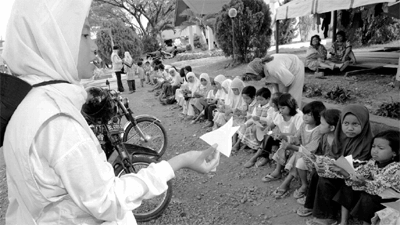
This content is restricted to subscribers

So often, the climate crisis is presented in frightening, threatening terms: rising seas, superstorms, raging wildfires, unlivable temperatures, species extinction, disappearing glaciers, dying coral, climate refugees. These are real. But the paradox is that this dystopian possibility is forcing us to imagine an entirely different kind of society. Schools have a central role to play in devising new alternatives and equipping young people to bring those alternatives to life. This is the work we’ve been assigned.
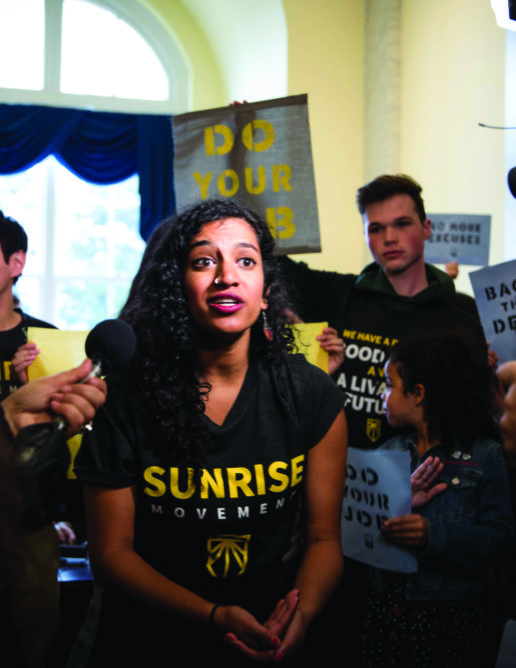
In the latest installment of our regular column “Earth, Justice, and Our Classrooms,” Rethinking Schools curriculum editor Bill Bigelow writes about global youth activism around climate justice and the urgency of the crisis, and introduces readers to the Zinn Education Project’s Teach Climate Justice campaign.
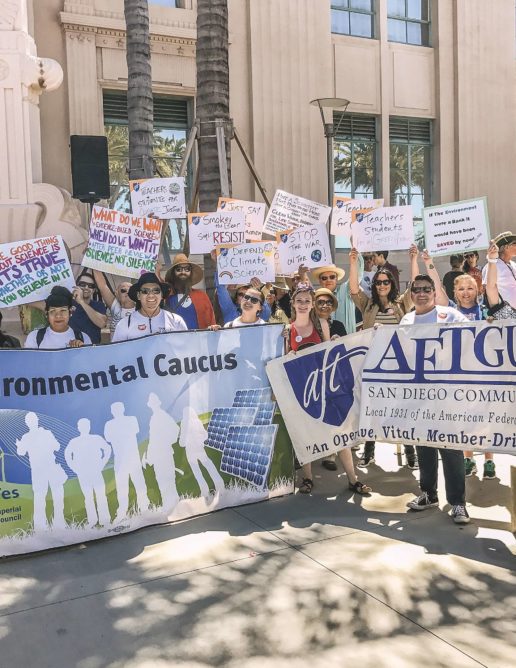
As young people across the country join the global movement to mobilize school strikes to demand climate action, one group is starting to think more seriously about how to best support those efforts: their teachers.
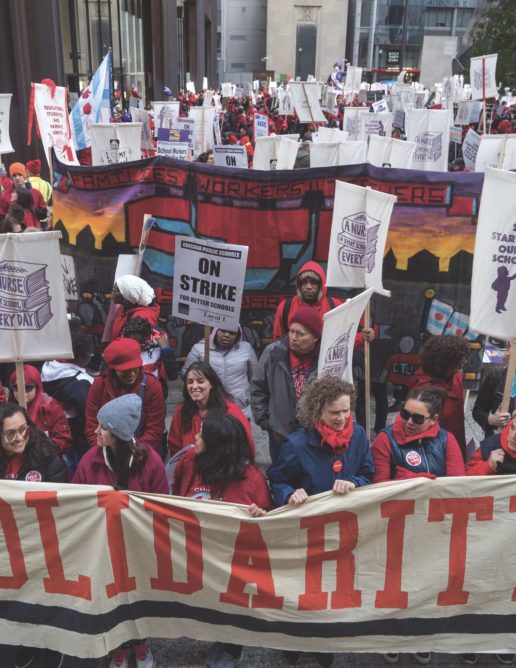
In 2018, numerous commentators portrayed the West Virginia, Oklahoma, Arizona, and Kentucky school walkouts as a purely “red state” phenomenon. But events this year have made clear that the strike […]

A Los Angeles teacher paints an intimate self-portrait of what it was actually like on the picket line during one of the most important public sector strikes in recent years.

We asked a group of radical educators to weigh in on what they hoped would be part of any 2020 presidential candidate’s education platform.
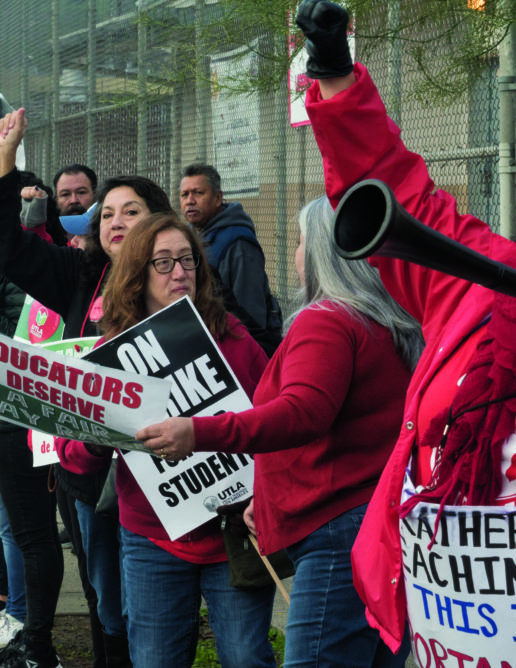
Rethinking Schools editor Jesse Hagopian interviews Gillian Russom, a teacher and leader with UTLA, about how the Los Angeles teachers’ strike was organized, what it won, and what it could mean for the future of the #RedForEd movement.
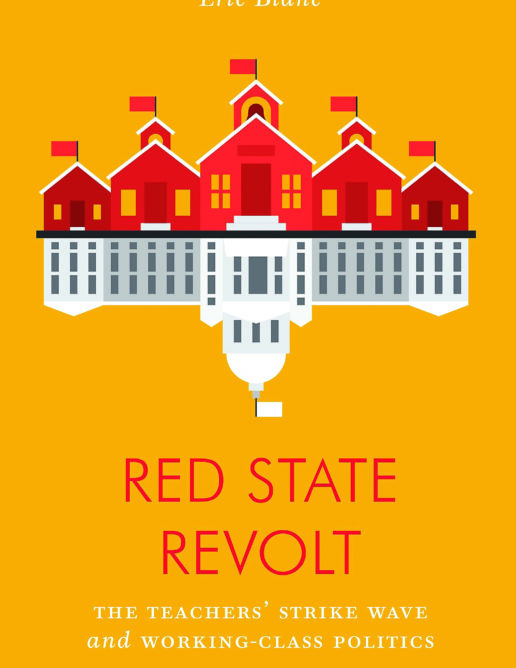
Fred Glass reviews Eric Blanc’s Red State Revolt: The Teachers’ Strike Wave and Working-Class Politics
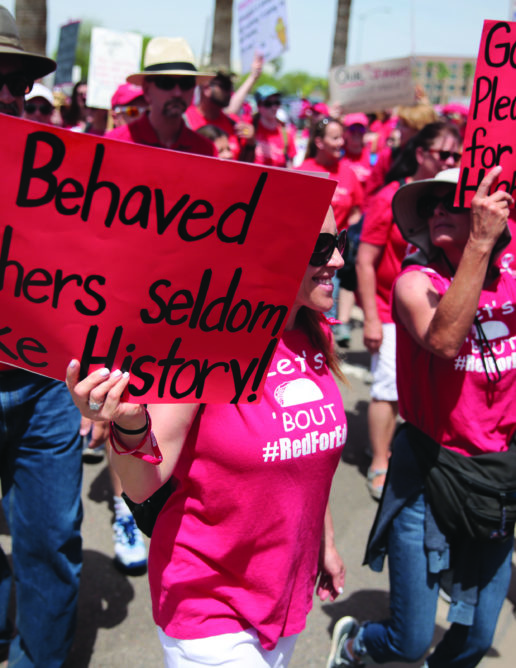
An elementary teacher who helped organize Arizona educators to strike explains how their movement formed and operated, and how it can inspire other teachers’ movements.
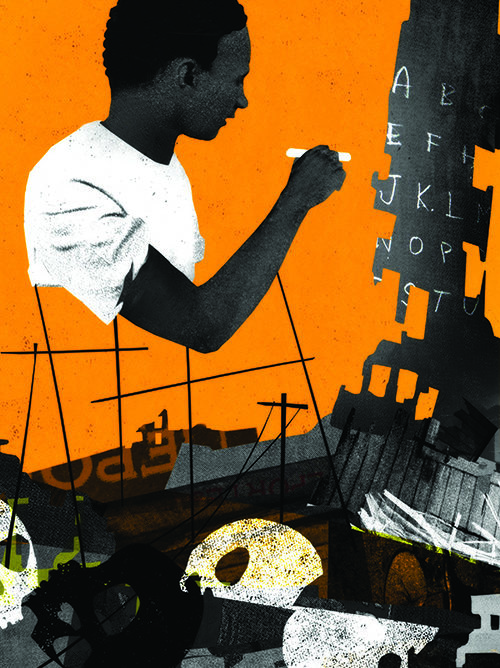
Immediately after an earthquake devastated Haiti in 2010, corporations swooped in to capitalize on the destruction and to privatize public enterprises. Hagopian explores how disaster capitalism hit the education system and what the effects were on students and families.
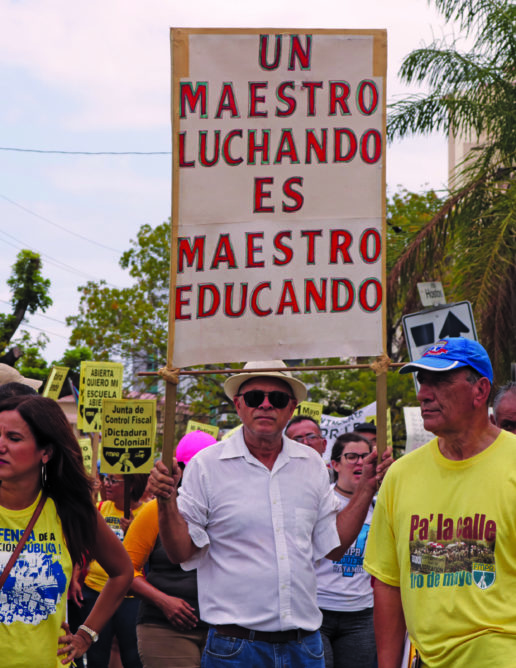
Union activists have been tirelessly organizing with communities, recognizing that these are the same stories of communities across the United States. The fight will go on, even as disaster capitalism on steroids wants to destroy the public education system.
Bob Peterson analyzes the Janus decision’s impact on teacher unions, talks with union leaders from across the country about how they are responding to it, and argues that the damage of the decision can be countered through the upsurge of progressive activism engendered by the victory of Donald Trump.
They’re calling it the “Education Spring,” and what started in a rural county in southwest West Virginia has spread like wildfire and inspired teachers and other public sector workers across […]
SPECIAL REPORT: Education “reformers” are using the disaster in Puerto Rico to close hundreds of public schools and convert much of the school system to charters. But teachers, parents, and students are fighting back.
The wave of struggles sweeping through the United States are more than “red state” revolts. They are rebellions against the austerity and privatization that has been driving federal and state economic policy for decades. The dynamics and political landscape are different in each state. However, almost all of the states where statewide actions have occurred are right-to-work states, which have seen the steepest cuts in school funding and sharpest erosion of teacher pay and benefits. These states are less likely to have collective bargaining rights and local district contracts. This puts more focus on state budgets and state decisions about healthcare and pensions, and encourages statewide action focused on the legislature. Consequently, many of the walkouts have been more akin to mass political protests seeking broad changes in public policy. But other common factors underlying these grassroots protests are likely to keep rebellion spreading to “purple” states like Colorado (where there was a walkout in April) and North Carolina (May) and beyond. Almost everywhere in “red states” and “blue states” alike, budget and tax policy has been used to erode social services, shrink public space, undermine union power, and transfer wealth upward, all the while making the lives of working people harder.
Trump supporter Carl Paladino’s racism, misogyny, and transphobia galvanized community members to oust him from the Buffalo School Board. Their struggle also laid the groundwork for new coalitions and progressive change.
I was just about to finish my second year teaching 2nd grade. It was the first week of June and school was quickly coming to a close. The sun was out and everyone’s energy was extraordinarily high. We were in Seattle after all; when the sun comes around, you rejoice. One morning that week I came to work and noticed I had an email from a parent. This was a parent I had a good relationship with, and she often checked in to see how her daughter was doing. But this email was different. The mother explained that her daughter had been cornered at recess the previous day by some boys who were also 2nd graders. The boys grabbed, groped, and humped her. They told her they were going to have sex with her. Her daughter told them to stop and to leave her alone, but they persisted. As this sweet one told her story of shame, confusion, and hurt to her family later that day, she became so upset that she threw up in the car. Her mother knew this wasn’t a miscommunication or misunderstanding.

It has always been an educator’s responsibility to act in solidarity with vulnerable students. But with President Donald Trump’s September declaration that he will end DACA, we are called on to be more audacious, more resolute, and more imaginative in our solidarity with the 800,000 undocumented young people who now face a frightening uncertainty about their future in the United States.
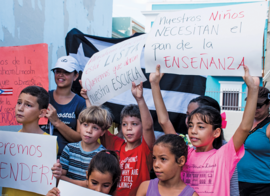
Puerto Rico’s teachers are resisting the onslaught of privatization efforts in the wake of Hurricane Maria.
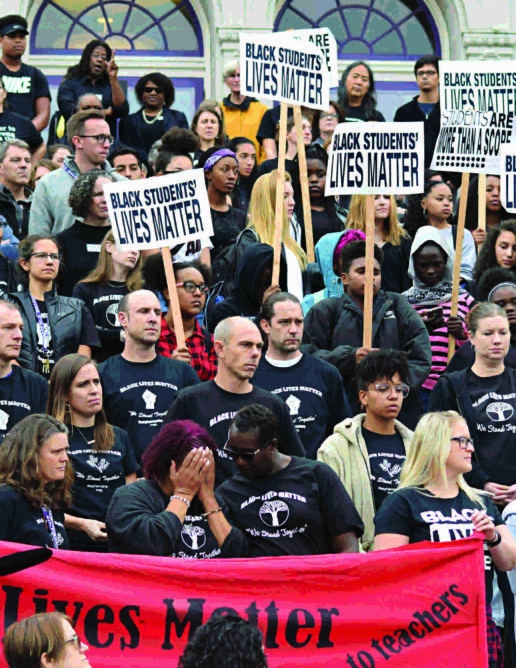
Teachers at one Seattle school show the important role educators have to play in the movement for Black lives, in part by creating a Black Lives Matter at School day, having 3,000 teachers wear Black Lives Matter T-shirts, and responding together to issues like the death of Charleena Lyles.
Repensando las escuelas nació en la era de Reagan. Celebramos nuestro décimo tercer aniversario en la era de Trump. Sabemos algo acerca de mantenernos esperanzados durante los tiempos difíciles. Hace […]
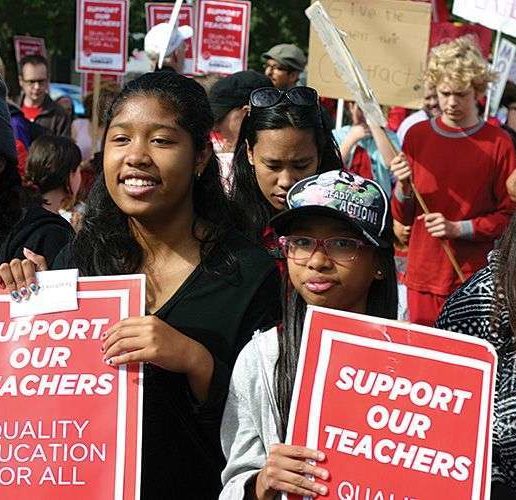
On Sept. 20, 2015, thousands of Seattle Education Association (SEA) members voted to approve a new contract with the Seattle Public Schools. The vote officially ended the strike, which delayed […]